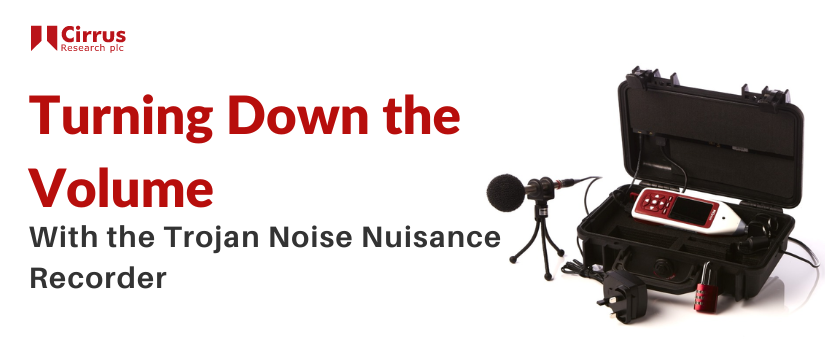Do you have questions about your noise measurement instruments that Google or Wikipedia just can’t seem to answer? Ask The Noise Doctor. I’m here to answer your most frequently asked questions. Whether it’s product or application based, I’m up to the challenge. In this article I’ll be covering battery life in the Optimus Sound Level Meter range.
A Commonly Asked Question
“How long will the batteries last in my Optimus sound level meter?”
 Let’s start by saying that the batteries that we supply with a new Optimus Sound Level Meter are good quality alkaline AA cells.
Let’s start by saying that the batteries that we supply with a new Optimus Sound Level Meter are good quality alkaline AA cells.
When they are new and are used in an instrument that is fresh out of the box (an instrument that is still in its default configuration), we would expect to get around 12 hours of use from them.
However, just like your mobile phone, this does largely depend on how long the screen is on for and how often you are downloading measurements. It may be less than this depending on how you are using the instrument.
Taking Account of Variables
There are also a number of other factors that affect the amount of use that you can get from batteries, some of which are outside of our control.
Even when an Optimus is switched off, it is still taking power from the batteries. Inside the Optimus is a clock chip that needs power to keep running. The power used by the clock is very small but it is consistent. If you put a new set of batteries into an instrument and then leave it switched off, after a long period of time the batteries may be flat or will have reduced in power.
If you are not going to use your equipment for a long period of time, we’d recommend that you remove the batteries to remove any risk of them leaking and damaging the equipment. You will need to reset the time and date when you next use the instrument, so make sure that this is done before you make any measurements.
The Life of a Battery
Batteries naturally discharge slowly whether they are being used or not.
This is why batteries from a good quality brand will have a date either on the packaging or on the batteries to show when they were manufactured. If you’ve got a set of batteries that is 2 years old for example, some of the power will have a discharged and so they will not be as good as when they were new.
The ambient temperature can also affect the amount of power that a battery can provide. If you are making measurements in a cold environment, the batteries will not work as efficiently as they would at room temperature and so you may not get as much life from them.
The most important factor affecting the battery life however is the quality of the batteries themselves.
Not all Batteries are the Same
We’ve tested a range of different batteries from different suppliers and we’ve found that the Varta Industrial Alkaline AA provides good performance. They don’t leak and have a good shelf life. These are the batteries that we supply with our equipment when it is new (the batteries are blue and yellow).
There are a wide range of other brands that provide Alkaline AA batteries and although you may not get as much use from them, they generally offer a similar performance.
However, you can still buy Zinc Chloride batteries. These are usually sold in packs of 12 or 16 batteries and can often seem to offer good value for money. However, we would not recommend that you use these in your sound level meter.
They almost always offer very poor performance (we’ve seen a set of new Zinc Chloride batteries run flat after 10 minutes!) and they can often leak causing damage to your equipment. Our service department has seen instruments that have been damaged by leaking batteries and more often than not these are low quality Zinc Chloride types.
Why Don’t We Use Rechargeable Batteries?
Another question that we get asked is why we don’t use rechargeable batteries in our sound level meters.
One of the main reasons is that you can buy AA batteries almost anywhere. If you only have a rechargeable battery pack in your instrument and it goes flat, can you replace it quickly and easily with a fully charged pack? Also, the cost for a replacement pack could be very high depending on the technology used.
Another reason is that we ship our equipment worldwide. A lot of our products are shipped overseas by air freight (often in the hold of the plane taking you on holiday!) and we don’t fit batteries in the instruments so there’s no risk of them leaking or switching on accidentally. There are also restrictions on the amount and type of batteries that are allowed to be shipped by air freight although this only affects Lithium based rechargeable batteries.
Can I Use Rechargeable Batteries in My Optimus?
The simple answer to this is yes. You can use rechargeable AA batteries in your Optimus sound level meter.
However, you should be aware that you probably won’t get as much life from them as you would from Alkaline batteries. Especially when they’ve been used for a year or so. The performance of rechargeable batteries will decrease over time, just like your mobile phone. Does your phone battery last as long now as when it was new?
Rechargeable batteries tend not to have the same voltage levels as Alkaline types. Alkaline batteries typically have a voltage level of 1.5v compared to 1.2v for a rechargeable NiMH types.
If you do decide to use rechargeable batteries, we’d always recommend that you have a set of Alkaline AA batteries available
5 Top Battery Tips for Getting the Best from Your Optimus
- Always have a spare set of batteries in the case with your equipment. You never know when they will run out.
- Check the batteries before you start making a measurement. Don’t assume that as the batteries were full when you put the equipment away that they will be full when you use it again.
- Wherever possible use good quality Alkaline batteries.
- If you’re going to store your instrument for a few months or more, take the batteries out but remember to set the time and date when you start using the equipment again.
- Make sure that when you get your equipment that you fit the batteries before asking for support! We’ve had plenty of support emails and calls where the user has not put the batteries into the equipment when they get it. Don’t forget that we don’t fit batteries when we ship the equipment to you.



